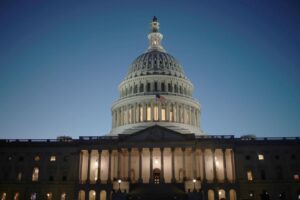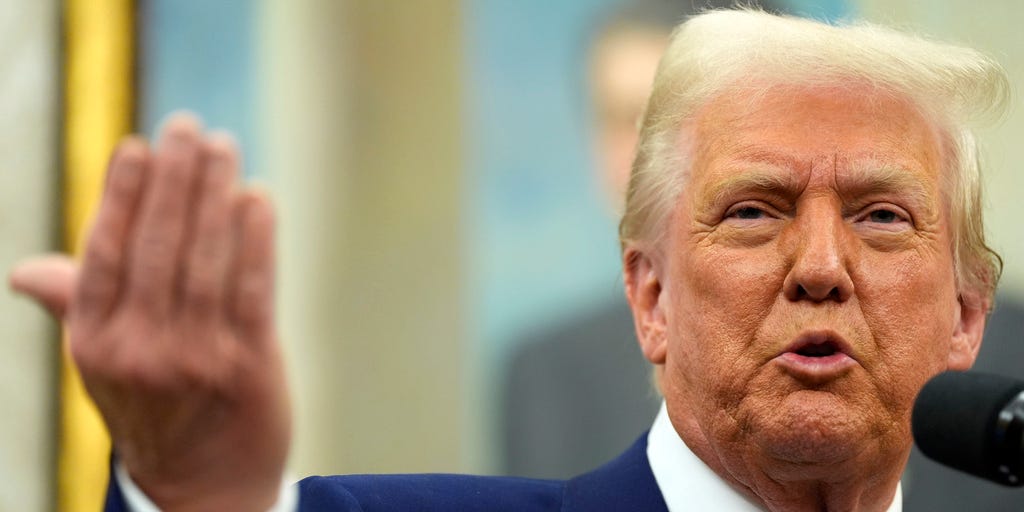- US President Donald Trump has called for reciprocal tariffs on other countries.
- Trump recently ordered 25% tariffs on steel and aluminum and an added 10% tariff on Chinese goods.
- Economists warn Trump’s tariffs may raise inflation and hurt US consumers.
President Donald Trump has called for “reciprocal tariffs” on countries that impose such levies on American goods, according to multiple reports.
“The world has taken advantage of the US for many years,” Trump said while speaking to reporters in the Oval Office on Wednesday. “They’ve charged us massive tariffs that we haven’t charged them.”
Trump described the principle behind the tariffs as “whatever they charge, we charge.”
“If they are charging us 130% and we’re charging them nothing, it’s not going to stay that way,” Trump had said on Monday.
Trump’s new directive comes just as Indian Prime Minister Narendra Modi lands in the US on Wednesday for a two-day visit.
Trump has called India a “tariff king” in his first term and has repeatedly complained about the country’s levies on imports.
India’s average tariff is above 10%, compared to the US’s average tariff of 2.3% in 2023.
Since taking office, Trump has been widening his trade war against trading partners.
On Monday, Trump imposed 25% tariffs on all steel and aluminum imports. The tariffs, which are set to take effect on March 12, could contribute to price hikes in construction, cars, and travel.
Earlier this month, Trump also placed a 10% tariff on imports from China. In response, Beijing announced retaliatory tariffs on coal, crude oil, agricultural machinery, and some vehicles.
Shortly after taking office, Trump imposed a 25% tariff on most goods from Canada and Mexico. He later announced that those tariffs would be delayed 30 days after he reached a deal with both countries to strengthen border security.
Economists and analysts are grappling with the impact of Trump’s tariffs, which are expected to increase inflation.
John Veroneau, a former deputy US trade representative, said Trump should clarify his trade agenda.
“Tariffs will not increase US manufacturing: technology, rather than trade, has been primarily responsible for the fifty-year decline in manufacturing jobs,” wrote Veroneau, who is a partner in the Covington & Burling law firm, in a February 11 post on the Council on Foreign Relations website.
Instead, employment has declined as factories can operate with more machines and fewer people, he added.
“Tariffs hurt American consumers and export-oriented manufacturers who lose sales when US trading partners impose their new tariffs in response,” wrote Veroneau.
This is a developing story, check back for more information.
Read the full article here















